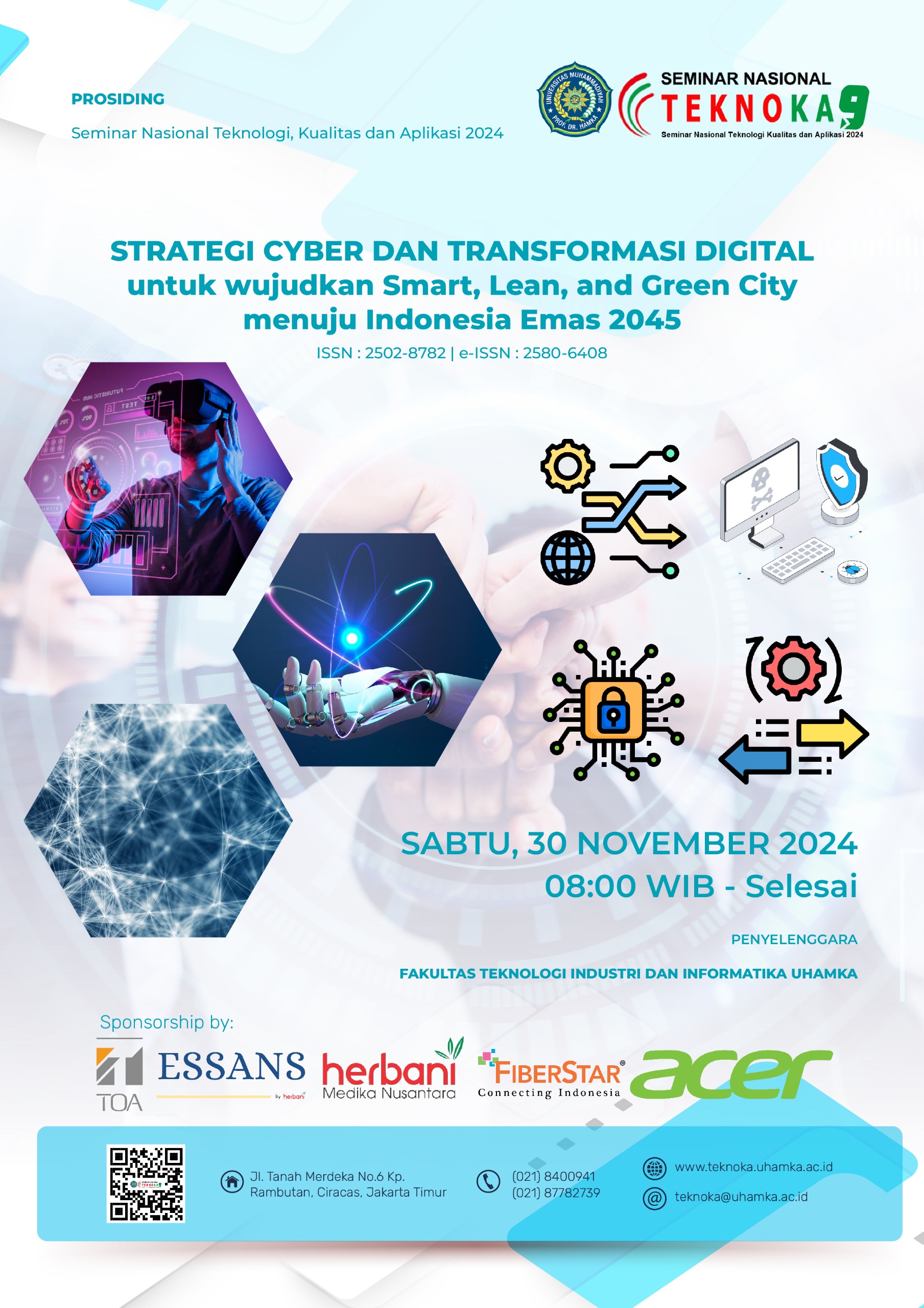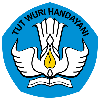Analisis Klasifikasi Tingkat Kesehatan Mental pada Mahasiswi Akhir dalam Menempuh Tugas Akhir Menggunakan Algoritma Support Vector Machine Studi Kasus: Universitas Darussalam Gontor
DOI:
https://doi.org/10.22236/teknoka.v9i1.17524Keywords:
Kesehatan Mental, Mahasiswi, Tugas Akhir, Klasifikasi, Support Vector MachineAbstract
Overall health depends on mental health or psychological well-being. Mental and physical well being are equally vital. One in two young people under the age of 25 will experience mental health issues at some point, and 75% of mental illnesses begin before the age of 25. Female university students are among those at the highest risk for mental health issues. Typically, students in their early and final semesters experience a high level of academic anxiety. One of the main factors causing psychological distress in students is the final project or thesis. This study aims to classify mental health levels, namely stress and anxiety, by training a classification model that makes use of the Support Vector Machine algorithm. The dataset used in this study is derived from a questionnaire distributed to final-year female students working on their thesis. The dataset consists of 249 records and is divided into two datasets for stress and anxiety classification. The results of this study show the highest accuracy in the stress classification dataset using the RBF and polynomial kernels, reaching 68% with the RBF kernel at gamma 1 and C 100. Meanwhile, the highest accuracy in the anxiety classification dataset reached 50% achieved with the polynomial kernel at degree 3 and C 100. The application of the best model indicates that the most influential features in the Stress and Anxiety datasets are Literature Review, Support System, and Analysis Method. The obtained accuracy can be used as a standard for upcoming studies using more complex data.
Downloads
References
World Health Organization, “Comprehensice Mental Health Action Plan 2013-2030,” Geneva, 2021.
W. Economic Forum, “A Global Youth Mental Health Advocacy Toolkit,” Orygen, 2020.
B. Media.com, “Tren Bunuh Diri di Kalangan Mahasiswa Sepanjang 2023, Apa Solusinya _,” Dec. 2023, Accessed: Feb. 07, 2024. [Online]. Available: https://bekasimedia.com/2023/12/23/tren-bunuh-diri-di-kalangan-mahasiswa-sepanjang-2023-apa-solusinya/
A. T. Setyanto, “Deteksi Dini Prevalensi Gangguan Kesehatan Mental Mahasiswa di Perguruan Tinggi,” Wacana, vol. 15, no. 1, p. 66, Feb. 2023, doi: 10.20961/wacana.v15i1.69548.
S. Suhandiah, A. Ayuningtyas, and P. Sudarmaningtyas, “Tugas Akhir dan Faktor Stres Mahasiswa,” JAS-PT (Jurnal Analisis Sistem Pendidikan Tinggi Indonesia), vol. 5, no. 1, p. 65, Jul. 2021, doi: 10.36339/jaspt.v5i1.424.
Nabila and A. Sayekti, “Manajemen Stres pada Mahasiswa dalam Penyusunan Skripsi di Institut Pertanian Bogor Stress Management for Undergraduate Students in Writing Thesis at IPB University,” Jurnal Manajemen dan Organisasi (JMO), vol. 12, no. 2, pp. 156–165, 2021.
A. M. Ali, A. A. Alkhamees, H. Hori, Y. Kim, and H. Kunugi, “The depression anxiety stress scale 21: Development and validation of the depression anxiety stress scale 8-item in psychiatric patients and the general public for easier mental health measurement in a post COVID-19 world,” Int J Environ Res Public Health, vol. 18, no. 19, Oct. 2021, doi: 10.3390/ijerph181910142.
N. Romadhona, S. Fitriyana, R. G. Ibnusantosa, and T. Respati, “Level of Depression, Anxiety, and Stress of College Students in Indonesia during the Pandemic COVID-19,” Global Medical and Health Communication (GMHC), vol. 9, no. 3, Dec. 2021, doi: 10.29313/gmhc.v9i3.8337.
S. Febriani and H. Sulistiani, “Analisis Data Hasil Diagnosa untuk Klasifikasi Gangguan Kepribadian menggunakan Algoritma C4.5,” Jurnal Teknologi dan Sistem Informasi (JTSI), 2021.
R. Alfaresy Chaerudin et al., “Implementasi Algoritma Naïve Bayes Untuk Analisis Klasifikasi Survei Kesehatan Mental (Studi Kasus: Open Sourcing Mental Illness),” 2022.
H. Dwi Putra, L. Khairani, D. Hastari, P. Studi Sistem Informasi, F. Sains dan Teknologi, and C. Author, “SENTIMAS: Seminar Nasional Penelitian dan Pengabdian Masyarakat Comparison of Naive Bayes Classifier and Support Vector Machine Algorithms for Classifying Student Mental Health Data Perbandingan Algoritma Naive Bayes Classifier dan Support Vector Machine untuk Klasifikasi Data Kesehatan Mental Mahasiswa,” 2023. [Online]. Available: https://journal.irpi.or.id/index.php/sentimas
S. Ghosh, A. Dasgupta, and A. Swetapadma, A Study on Support Vector Machine based Linear and Non-Linear Pattern Classification. International Conference on Intelligent Sustainable Systems (ICISS), 2019.
D. V. Fakhriyani, “Kesehatan Mental,” 2019. [Online]. Available: https://www.researchgate.net/publication/348819060
World Health Organization, “Mental Health WHO,” Jun. 2022, Accessed: Feb. 06, 2024. [Online]. Available: https://www.who.int/news-room/fact-sheets/detail/mental-health-strengthening-our-response
N. Izzati Septia, N. Kamal, and P. Kesehatan Banjarmasin, “KESEHATAN MENTAL DAN KETENANGAN JIWA KAJIAN PSIKOLOGI AGAMA,” 2023.
J. Andriana and N. N. Prihantini, “HUBUNGAN TINGKAT STRES DENGAN INDEKS MASSA TUBUH PADA MAHASISWA FAKULTAS KEDOKTERAN UNIVERSITAS KRISTEN INDONESIA,” 2021.
S. B. Seto, M. T. S. Wondo, and M. F. Mei, “Hubungan Motivasi Terhadap Tingkat Stress Mahasiswa Dalam Menulis Tugas Akhir (Skripsi),” Jurnal Basicedu, vol. 4, no. 3, pp. 733–739, Jun. 2020, doi: 10.31004/basicedu.v4i3.431.
A. Trifani, S. Tunas Bangsa, A. Perdana, W. Stikom, T. Bangsa, and H. Qurniawan, “Penerapan Data Mining Klasifikasi C4.5 dalam Menentukan Tingkat Stres Mahasiswa Akhir,” Jurnal Riset Rumpun Ilmu Teknik (JURRITEK), vol. 1, no. 2, 2022.
M. Wibowo, M. Rizieq, and F. Djafar, “Perbandingan Metode Klasifikasi Untuk Deteksi Stress Pada Mahasiswa di Perguruan Tinggi,” JURNAL MEDIA INFORMATIKA BUDIDARMA , 2023, doi: 10.30865/mib.v7i1.5182.
C. Schröer, F. Kruse, and J. M. Gómez, “A systematic literature review on applying CRISP-DM process model,” in Procedia Computer Science, Elsevier B.V., 2021, pp. 526–534. doi: 10.1016/j.procs.2021.01.199.
Downloads
Published
How to Cite
Issue
Section
License
Copyright (c) 2024 Prosiding Seminar Nasional Teknoka

This work is licensed under a Creative Commons Attribution-NonCommercial-ShareAlike 4.0 International License.






 Supported by :
Supported by :



